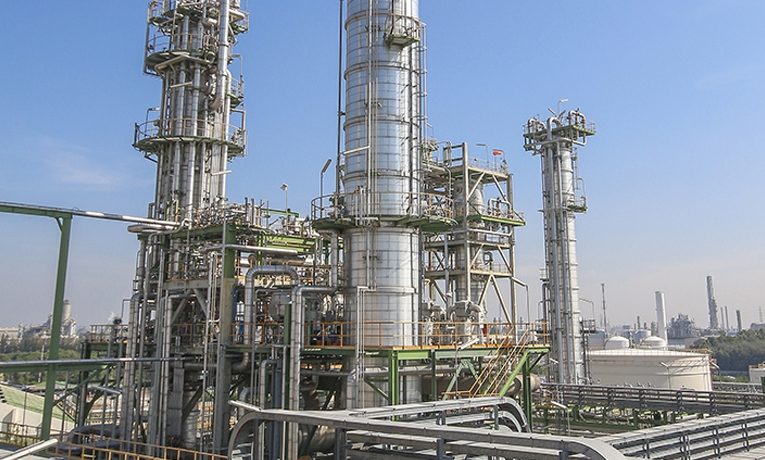Simply put, Solomon’s Performance Excellence Process (PEP) helps clients improve their net cash margin without the need for capital investment. Using the world’s largest databases of energy industry assets in combination with the expertise of Solomon’s industry professionals, PEP™ provides the foundation required to enhance the performance of client assets. In fact, PEP is unmatched in its thoroughness and capacity to achieve change within the energy industry. While we may call it PEP, our clients refer to it a “game changer.”
PEP: A More In-Depth Look
PEP’s ability to improve a client’s net cash margin is based on Solomon’s “measure, manage, and maximize” process. The first part of this three-pronged process consists of measuring the performance gaps within a client’s asset. The second part involves managing the gaps identified by adhering to an action plan to create a culture that is ready for change. Finally, in the third part, changes are maximized through development of a continuous improvement process.
PEP usually begins with a client’s participation in a Solomon Comparative Performance Analysis™ (CPA™) benchmarking study (though PEP can be used with non-study participants as well). Based on the client’s CPA™ results, we develop a comprehensive approach designed to increase the economic and operational efficiency of the client’s asset. Often, however, benchmarking alone does not enable sustainable performance improvement. That’s why we augment our understanding of client operations through on-site reviews of key work processes, which we then compare to the processes of top-performing facilities around the world.
How PEP is Different
PEP creates an in-depth and detailed understanding of client needs and current operations. Based on this understanding, we recommend a customized program to increase the financial and operational performance the client’s asset. Unlike other performance assessment programs, which are often designed to increase returns in only one area, PEP’s goal is to enhance performance in all areas of operation. We focus on maximizing capital, creating sustainable development, and implementing best practices. Our thorough approach covers the following areas:
- Strategy
- Hydrocarbon Loss
- Process Unit Operations
- Planning & Optimization
- Advanced Process Control
- Technical Services
- Turnarounds
- Supply Chain
- Reliability & Maintenance
- Procurement
- Greenhouse Gas Management
- Energy Management
- Organizational Effectiveness
- Quality Control
Phase 1 – Performance Assessment
PEP, a four-phased methodology, begins with Phase 1 – Performance Assessment. In this initial phase, we identify opportunities for improving the client’s net cash margin without spending its capital. As previously mentioned, these opportunities are usually highlighted during our benchmarking analysis and our own on-site assessment of the client’s work practices and performance. In addition, we perform an extensive analysis of the gross margin gap of the client’s asset. Our Best Practices Assessment (BPA) examines the following areas:
- Site Wide
- Planning and Optimization
- Hydrocarbon Loss
- Energy
- Technical Services - Reliability & Maintenance
- Turnarounds
- Reliability
- Maintenance - Process Units
- Crude Distillation Unit/Vacuum Distillation Unit (CDU/VDU)
- Cat Cracker
- Hydrocracker
- Coker
- Reformer
- Hydrodesulfurization (HDS) & Sulfur
- Olefin Cracker
- Aromatics Recovery - Gross Margin
- Internal Stream Optimization
Results of the first phase include “Quick-Hit” recommendations that can be implemented within 90 days. These changes typically recoup the entire cost of the PEP review without any capital investment.
Phase 2 – Identify Opportunities & Prioritize Recommendations
As we move into Phase 2, we develop a list of no- or low-capital recommendations. Our recommendations are unique in that we don’t tell the client how to carry them out. We believe our clients and their personnel must be responsible for implementing the suggested changes. This philosophy helps ensure the client is on the right path for successful change. Working in tandem with the clients’ personnel, we help them prioritize these recommendations based on our methodology, which includes estimated benefits and costs. This in turn becomes the outline of an action plan for implementation, which is Phase 3. The duration for Phases 1 and 2 is 3−6 months.
Phase 3 – Implementation
Phase 3 is the most complicated and important step within the four phases of PEP. With help from the client’s on-site Best Practices Teams (BPTs), usually formed in Phase 1, we assist in the implementation of the recommendations developed in Phase 2. In the initial stages of Phase 3, we hold focus meetings to ensure all client personnel and our team at Solomon are in alignment about what needs to be done. Then we move to problem-solving training, to certify that all personnel know how to execute the required changes. We develop action plans describing how we will implement the changes and then move into action plan implementation.
What is unique about our implementation phase is that we provide the technical and change-management expertise as well as the impetus needed to get these changes made. Our support not only accelerates but increases the financial benefits of these new recommendations. During this phase, the annual return is typically 30−40% of the original gap measured in the CPA™ benchmarking study.
Phase 4 – Sustaining Improvements
Phase 4 begins with a re-benchmarking of the client’s asset to illustrate other areas where improvements can be made. We help the client learn to self-audit their work practices, create new initiatives and action plans, and establish a Continuous Improvement Plan (CIP). The idea is to instill a culture of continuous improvement throughout the client’s organization. The ultimate goal of Phase 4 is to show that improvement never ends—it is an ongoing practice.
Why Choose Solomon?
Solomon is the most experienced firm in the energy benchmarking industry, with more than 30 years as an international leader. We have the largest energy industry databases in the world, and our data-driven methodologies remain unchallenged in their capacity to provide excellent, long-term sustainable growth and high performance results. Nowhere is this more evident than when a client participates in PEP. With an average of 25 years’ experience in the energy industry, our team at Solomon will continue to focus on removing the barriers that prevent our clients from realizing the full potential of their assets.

.jpg)

.jpg)
-updated.jpg)


.jpg)




.jpg)
-updated.jpg)
.jpg)
.jpg)
-updated.jpg)
-updated.jpg)
.jpg)
.jpg)
.jpg)


.jpg)
.jpg)
.jpg)
.jpg)
.jpg)
.jpg)
.jpg)
.jpg)
.jpg)
.jpg)
.jpg)
.jpg)
.jpg)